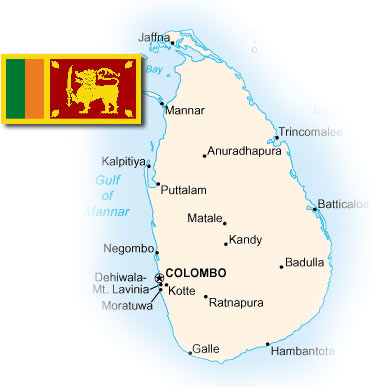Mob violence against pastors, often instigated by Buddhist monks, is on the rise as the gospel reaches more communities in Sri Lanka.
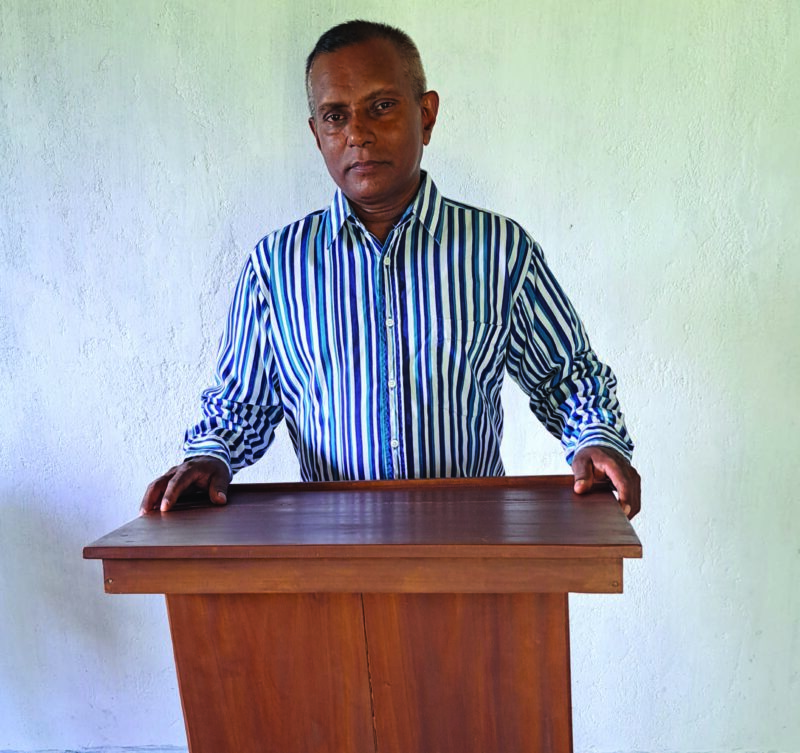 Returning home early one evening Pastor Chandrapala (pictured) was faced with an angry 50-strong mob surrounding his property. Despite his obvious fears, he kept calm and was able to record the harassment on his phone. The group included a number of Buddhist monks who, after spotting his presence, tried to goad him into responding in order to raise a complaint against him.
Returning home early one evening Pastor Chandrapala (pictured) was faced with an angry 50-strong mob surrounding his property. Despite his obvious fears, he kept calm and was able to record the harassment on his phone. The group included a number of Buddhist monks who, after spotting his presence, tried to goad him into responding in order to raise a complaint against him.
However, he kept silent. Bizarrely they even warned him that although he could hold a church service, he could not invite anyone else to attend!
Thankfully the emergency response team at the local police station was led by a Christian officer who upon being made aware of the incident took immediate action.
Pastor Chandrapala lives in an area populated by Hindus as well as Buddhists. While the church distributed packs of literature to Hindu children there was no reaction from the local community; however, once Buddhist youngsters started receiving them the uproar began.
At the insistence of local monks, who exert great influence in the community, the pastor was called to an inquiry earlier this year, and incorrectly accused of holding prohibited meetings on the ground that they were not taking place in a registered church. The law actually permits such gatherings but he was warned to stop his activities.
When the pastor was challenged that the books he was distributing were attempts to convert others, his response was that he was not trying to convert but simply to bless the local community.
However, despite his actions being lawful, a mob was rounded up to intimidate him as he returned home.
This was not the first time he had faced threats.
In 2019 the entire village community had surrounded his home when he had two other pastors visiting. Police, who blocked the roads, and monks were among the crowd trying to intimidate the Christians.
Chandrapala had built his church with the support of other congregations and that seems to have been the issue. The church has a congregation of about 15 but none are from the local village area.
His children are at school and feel the resentment against them, but they believe that they have God’s protection. His daughter, who is supported by our partners, goes to a Christian school.
Our partner also provides legal help to Pastor Chandrapala.
This persecution is part of an increasing Buddhist nationalism not just in society but at state level. Currently, a government minister is working to introduce more formal registration procedures for all churches including meetings in individual houses.
At the same time Hindu fundamentalism, influenced by the Indian experience, is rising in the north and east of the country where the population is predominantly Tamil.
CHURCH GROWS 500 PER CENT
In March last year, Buddhist villagers organised a 1,000-strong mob attack on Pastor Indrajith’s church after a number of local families came to faith in Christ.
These attacks were instigated by ten temples. Believers were threatened and told to stop services, some were beaten, and one was hospitalised with a split mouth. When the pastor visited his church members, he was often stopped by crowds, monks and the police. He has had death threats, even whilst in a police station.
On Easter Sunday he was challenged by the police who had come armed with guns and was told to stop the service. Officers then took him and about 100 of his congregation to the police station where the pastor demanded to know his rights.
Our partner has become involved in supporting the church, which has been opposed by politicians and local officials. The outcomes so far are encouraging. The judge hearing the cases has ruled that the opposition was wrong and that Indrajith did have the right to hold worship services.
He filed a human rights petition against the politicians, and they immediately stopped their hostile actions. On top of that all the protests of the monks were shown to be illegal.
One of the pastor’s opponents, who was a drug dealer and led the attack, eventually found Christ. When he died soon after, Indrajith conducted his funeral. One of the monks who led the attack has even since become his friend and some of the other monks who instigated the attack, former childhood friends, have since spoken in his defence.
Most encouragingly of all, since the incident his congregation has grown by 500 per cent! But it has come at a cost. His children have had to move to a Christian school after being beaten.
He is now affiliated to our partner and is determined to stay and continue his work. Members of a local parliament have even visited the church for a blessing.
Indrajith’s ambition is to establish more disciples and churches during the next 20 years. He wants to see a church within walking distance for everyone and is pleased that our partner is doing resilience training with his congregation. Members are more confident and less fearful as they are aware of their rights.
LOVE FOR A BOMBER
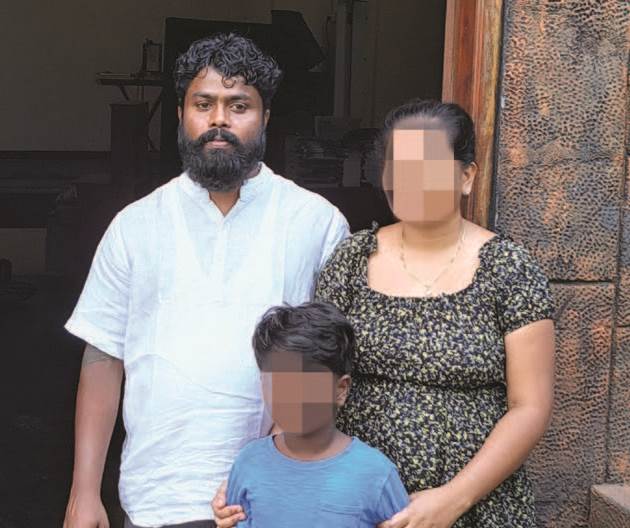 Pastor Hasitha Nuwan, (pictured) who oversees seven churches in a Buddhist area and whose vision is to reach all 520 unchurched villages in a 30km radius, was recently harassed by monks who tried to provoke him into an angry response.
Pastor Hasitha Nuwan, (pictured) who oversees seven churches in a Buddhist area and whose vision is to reach all 520 unchurched villages in a 30km radius, was recently harassed by monks who tried to provoke him into an angry response.
He values prayer for all the issues relating to persecution, but especially for grace not to retaliate, and for deliverance from his enemies. He struggles particularly when young people are targeted by his opponents. One recently needed stitches to a wound.
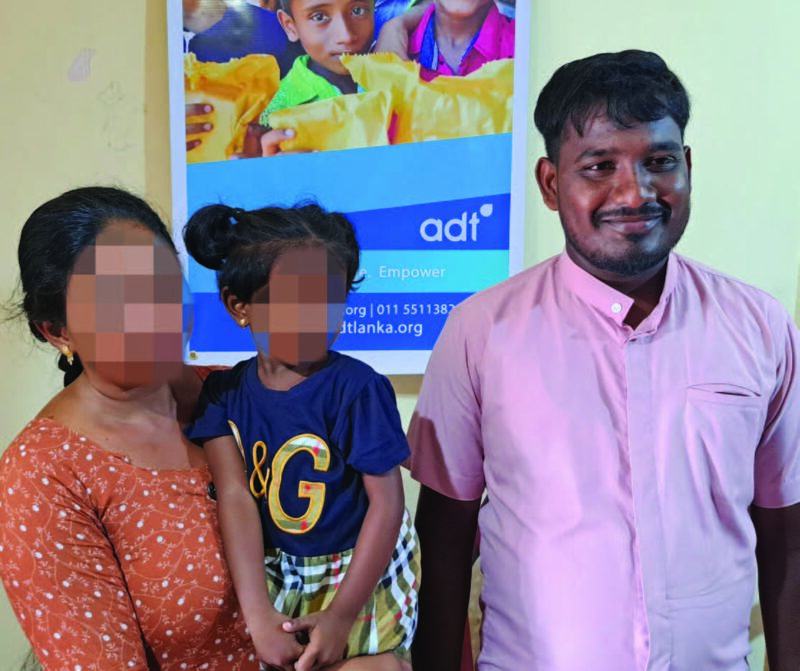
Pastor Suganthraj (pictured), who comes from a Hindu family, has faced ongoing persecution.
After his father-in-law was dragged into a Buddhist temple and beaten up, his house was pelted with stones and motor bikes were revved up outside his home. When he is away, thugs open the gates into the family’s land and let animals in to eat their vegetables.
In March their small shop was set alight with the loss of their motorcycle.
‘The pastor would ask us to pray that his ministry will grow, that the family’s financial needs will be met and that they will be able to live in peace not in fear,’ our partner said.
Another pastor had a narrow escape when a small bomb that was about to be thrown at him blew up in the hand of his attacker, who required 52 stitches. Despite the attack the pastor went to visit him and told him that Jesus loved him!
CHANGING TRENDS
There is evidence of recent changing trends, said our partners, as discrimination increases against Christians in Sri Lanka. In 2020 there was mostly local state-led opposition to Christian activity but, by 2022, specific individuals or groups not acting on behalf of the state were blamed for these attacks.
One of the factors in the hostility is the fact that Sinhalese Buddhism exists only in Sri Lanka so when it is threatened its adherents spring to its defence sometimes violently.
Although there is currently no legal requirement to register churches and no official procedures, the situation is likely to change for the worse, says our partner. There may be the introduction of anti-conversion legislation arising from the view that conversions to Christianity are causing ‘disharmony’.
While Roman Catholic and Assemblies of God churches are recognised as traditional (at least in principle), evangelical churches are not. Recently there has been renewed hostility against evangelicals because they have been branded as ‘born again’ – a term that has been deliberately used to imply Christian ‘extremism’.
To counter the threats, our partners run workshops on the law and religious freedom and have established a network of 150 lawyers across the country to defend churches and pastors when needed.
(Source: Release International partners)
A DIVERSE NATION
Sri Lanka is both religiously and ethnically diverse
- Buddhists account for about 70 per cent of the population, followed by Hindus at 12.6 per cent, Muslims (mostly Sunni) at 9.7 per cent, Roman Catholics at 6.1 per cent and Protestant Christians at 1.3 per cent
- Most Sri Lankans are Sinhalese, a majority of whom are Buddhist
- The second largest ethnic group, Sri Lankan Tamils, are mostly Hindu with a significant Christian minority
- Muslims are recognised as a separate ethnoreligious group
- Indian Tamils and a small number of other ethnicities round out the population.
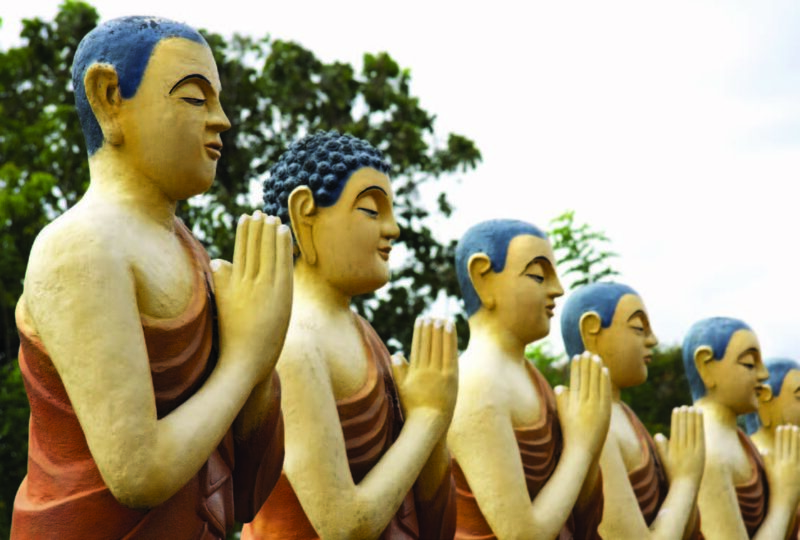
RELIGIOUS EXTREMISTS UNITE AGAINST THE ‘BORN-AGAIN CULT’
It is almost four years since Release International has been able to visit Sri Lanka. The effects of Covid 19 and the economic problems have taken their toll and the country has suffered. The population continues to have serious problems, one of which is that the important tourist trade has not picked up, even though the rate of inflation has now reduced from 95 per cent to 25 per cent. Consequently, many churches, their members and pastors have endured great financial hardship.
Against this background there is a clear and worrying trend that persecution of evangelical churches is on the increase. Local temples, both Buddhist and Hindu, are opposing pastors and there is now even evidence of Buddhist and Hindu extremists working collaboratively against the church, labelling evangelicals as the ‘born-again cult’.
Opposition and attacks are often against very isolated pastors with harassment and physical hostility being backed up by what are currently false allegations that churches must register before they can meet.
Encouragingly our partner has recruited and trained 150 lawyers who are now willing to provide legal representation for struggling churches and pastors.
We have witnessed very courageous pastors determined to share the love and gospel of Christ in the face of daunting hostility often under attack and greatly outnumbered by large hostile crowds.
We praise God for the vision, the faithfulness, the courage, and the compassion for their neighbours and enemies found in the hearts of many pastors. The gospel is spreading, and the church is growing.
They and our partner need our prayers and support to help them to sustain their love, commitment and courage. The words of one pastor we met are unforgettable: ‘This is the least reached area; I want to make it the most reached area!’
‘Linda’ (Release International Volunteer)
ENTRENCHED ISSUES
There has been an increase in anti-minority rhetoric and staunch Buddhist nationalism. The ethno-religious violence against minority faith groups, particularly the Christian community, is both an entrenched and chronic issue that has persisted in Sri Lankan society irrespective of the changes to the country’s socio-political and economic context. In the past 24 months there have been:
- 160-plus recorded incidents of FoRB (Freedom of Religion or Belief) violations perpetrated against the Christian community
- The State is the main driver of FoRB violations against Christians (over 60 per cent of the incidents since 2021)
- There has been an increase in the intensity and frequency of Hindu extremist group-led incidents of persecution against the Christian community
- The main points of contention in social hostilities and state restrictions against Christians are propagation, conversion and registration
- Negative judicial sentiment concerning FoRB in general and religious freedoms of Christians in particular.
HOW YOUR SUPPORT HELPS
Thanks to your support we are able to provide:
- Tailored help to the children of rural pastors, especially those affected by the economic collapse, who are facing pressure from their communities
- Lawyer assistance to Christians who face legal pressures
- Support for Christian teachers who provide education to children forced out of state schools because of their faith.
You can download and read more stories from our latest Voice magazine here
Click the button below to sign up and receive your FREE copy of VOICE Magazine by post 4 times a year
